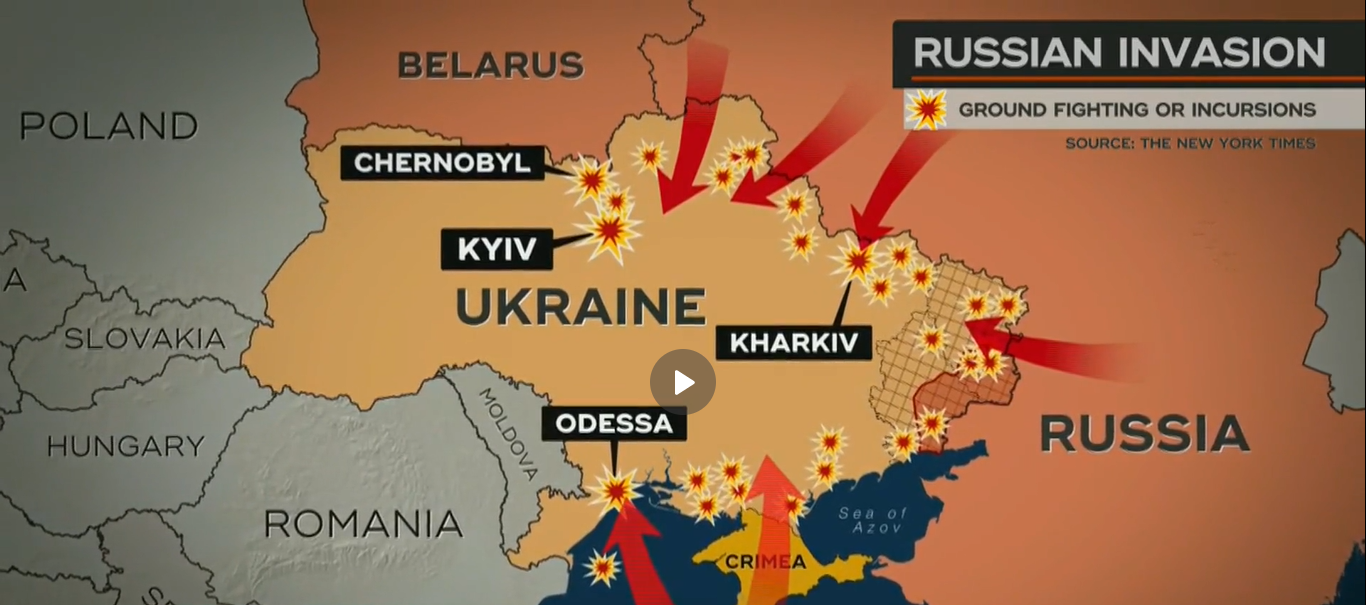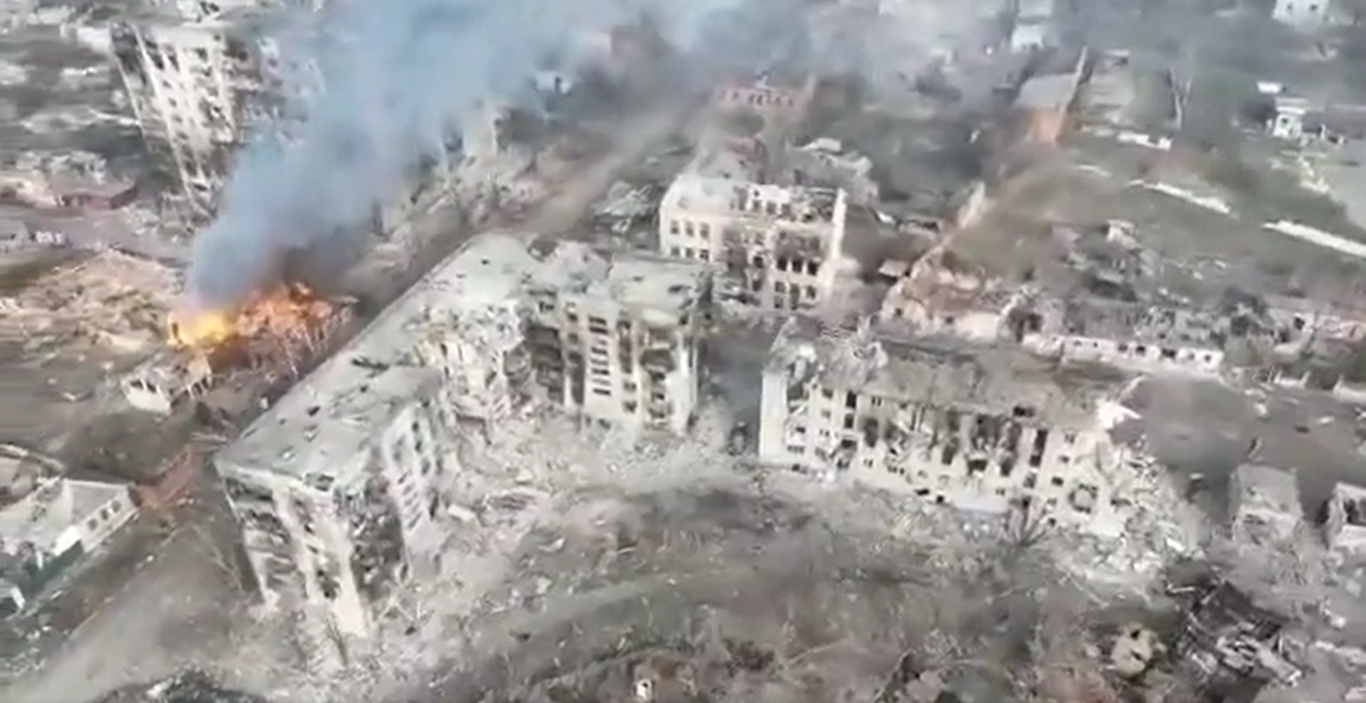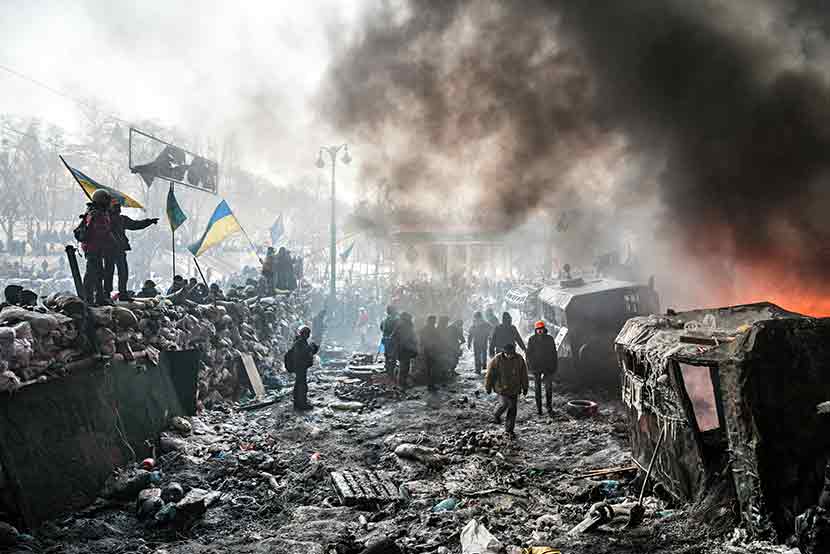The ICJ settles, in accordance with international law, legal disputes submitted to it by States (like the case Ukraine v. Russian Federation) and to give advisory opinions on legal questions referred to it by authorized United Nations organs and specialized agencies.
In October 2016, the International Court of Justice (ICJ) delivered judgments in the case of “Obligations concerning Negotiations relating to Cessation of the Nuclear Arms Race and to Nuclear Disarmament” - Marshall Islands v. the United Kingdom, India and Pakistan. The Marshall Islands contended that the nuclear powers did not fulfil their obligations under Article VI of the Non-Proliferation Treaty ‘to pursue negotiations in good faith on effective measures relating to […] nuclear disarmament’. The very notion of this provision figured prominently in the ICJ’s 1996 Advisory Opinion on the “Legality of the Threat or Use of Nuclear Weapons” at the request of the General Assembly of the United Nations.
How about the relevant issues of international law and arms control law?
|
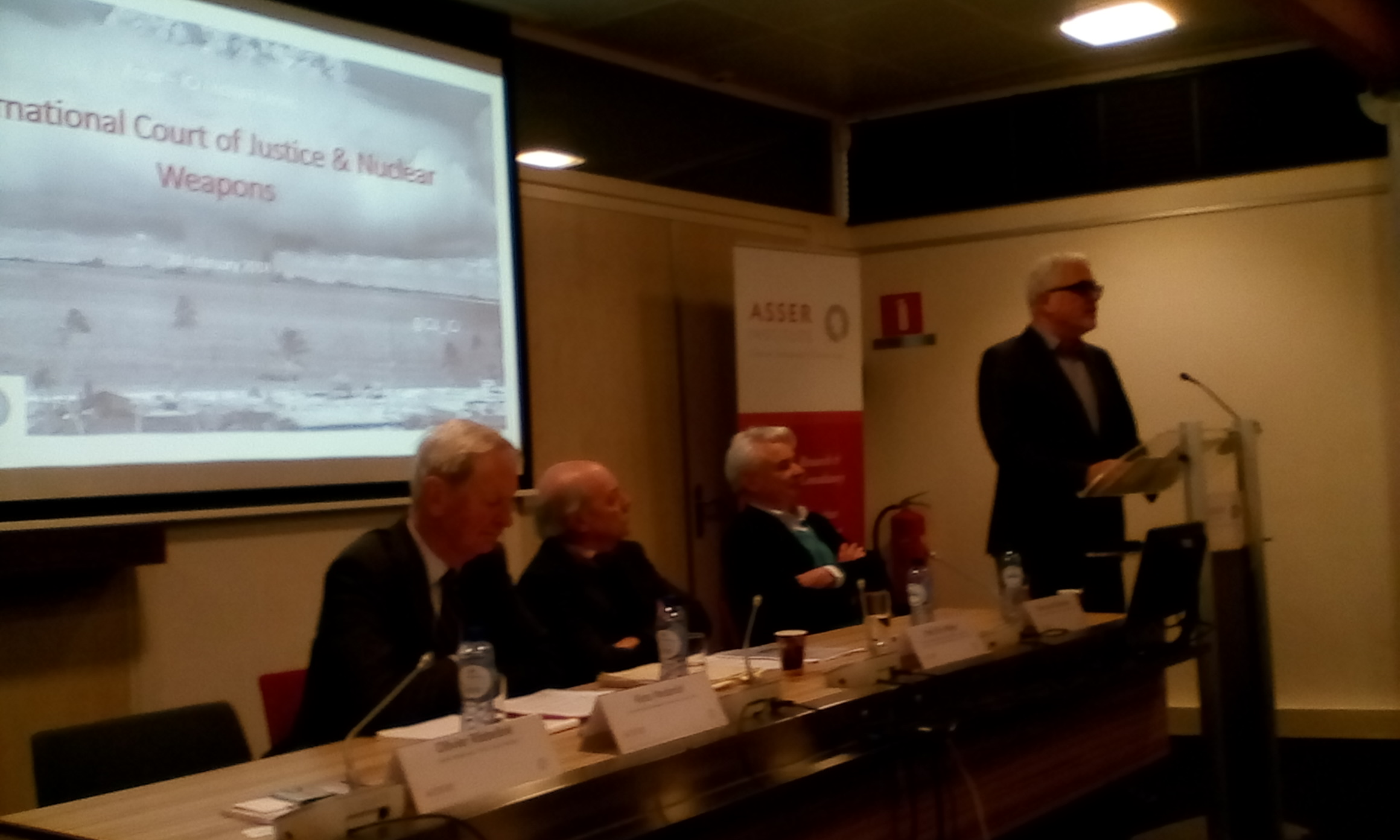 |
Legality of the Threat or Use of Nuclear Weapons [1996] ICJ 2 is a landmark international law case, where the International Court of Justice gave an advisory opinion stating that there is no source of law, customary or treaty, that explicitly prohibits the possession or even use of nuclear weapons. The only requirement being that their use must be in conformity with the law on self-defence. As well as determining the illegality of nuclear weapon use, the court discussed the proper role of international judicial bodies, the ICJ's advisory function, international humanitarian law (jus in bello), and rules governing the use of force (jus ad bellum). It explored the status of "Lotus approach", and employed the concept of non liquet.
There were also strategic questions such as the legality of the practice of nuclear deterrence or the meaning of Article VI of the 1968 Treaty on the Non-Proliferation of Nuclear Weapons.
Relevant links:
- CTBTO (Comprehensive Nuclear-Test-Ban Treaty Organization)ICAN (International Campaign to Abolish Nuclear Weapons)IPB (International Peace Bureau)IPPNW (International Physicians for the Prevention of Nuclear War)
- IALANA (International Association of Lawyers Against Nuclear Arms)
|
|
|
The ICTY tribunal was an ad hoc court located in The Hague, Netherlands. The Court was established by Resolution 827 of the United Nations Security Council, which was passed on 25 May 1993. It had jurisdiction over four clusters of crimes committed on the territory of the former Yugoslavia since 1991: grave breaches of the Geneva Conventions, violations of the laws or customs of war, genocide, and crimes against humanity. The maximum sentence it could impose was life imprisonment. Various countries signed agreements with the UN to carry out custodial sentences.
A total of 161 persons were indicted; the final indictments were issued in December 2004, the last of which were confirmed and unsealed in the spring of 2005. The final fugitive, Goran Hadžić, was arrested on 20 July 2011. The final judgment was issued on 29 November 2017 and the institution formally ceased to exist on 31 December 2017.
|
The ICC is participating in a global fight to end impunity, and through international criminal justice, the Court aims to hold those responsible accountable for their crimes and to help prevent these crimes from happening again. The Court cannot reach these goals alone. As a court of last resort, it seeks to complement, not replace, national Courts. Governed by an international treaty called the Rome Statute, the ICC is the world’s first permanent international criminal court.
In 2012, the present Deputy
Prosecutor lectured on ICC's role to share some reflections on issues relating to
justice, peace and security. The website Vision of Humanity focuses on the major issues facing us in the 21st century and it is going to try and bring a balanced approach with factual information that is positive and solution based.
The ICC is intended to complement existing national judicial systems and it may therefore only exercise its jurisdiction when certain conditions are met, such as when national courts are unwilling or unable to prosecute criminals or when the United Nations Security Council or individual states refer investigations to the Court. The ICC has four principal organs: the Presidency, the Judicial Divisions, the Office of the Prosecutor, and the Registry.
The President is the most senior judge chosen by his or her peers in the Judicial Division, which hears cases before the Court. The Office of the Prosecutor is headed by the Prosecutor who investigates crimes and initiates proceedings before the Judicial Division. |
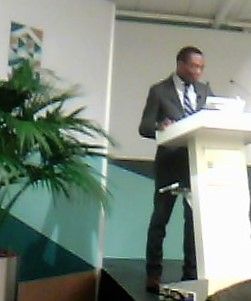 |
The Registry is headed by the Registrar and is charged with managing all the administrative functions of the ICC, including the headquarters, detention unit, and public defense office.
The establishment of an international tribunal to judge political leaders accused of international crimes was first proposed during the Paris Peace Conference in 1919 following the First World War by the Commission of Responsibilities.
|
|
The Special Tribunal for Lebanon is the first tribunal of international character to prosecute terrorist crimes. The tribunal is of international character. The STL was inaugurated on 1 March 2009 and has four organs:
- Chambers The Office of the Prosecutor The Defence Office
- Registry
Its primary mandate is to hold trials for the people accused of carrying out the attack of 14 February 2005 which killed 22 people, including the former prime minister of Lebanon, Rafik Hariri, and injured many others. |
| Kosovo Specialist Chambers & Specialist Prosecutor's Office |
The Kosovo Specialist Chambers and Specialist Prosecutor’s Office were established pursuant to an international agreement ratified by the Kosovo Assembly, a Constitutional Amendment and the Law on Kosovo Specialist Chambers and Specialist Prosecutor’s Office. They are of temporary nature with a specific mandate and jurisdiction over crimes against humanity, war crimes and other crimes under Kosovo law, which were commenced or committed in Kosovo between 1 January 1998 and 31 December 2000 by or against citizens of Kosovo or the Federal Republic of Yugoslavia.
The Kosovo Specialist Chambers and the Specialist Prosecutor’s Office have a seat in The Hague, the Netherlands. Their staff is international, as are the Judges, the Specialist Prosecutor and the Registrar. |
The Iran-United States Claims Tribunal (IUSCT), an international tribunal that conducts arbitration on the financial settlement of the nationalization of US assets in Iran. This is related to the hostage-taking of people at the American embassy in Tehran at the time. |
|
The Iran-United States Claims Tribunal was established on 19 January 1981 by the Islamic Republic of Iran and the United States of America to resolve certain claims by nationals of one State Party against the other State Party and certain claims between the State Parties. To date, the Tribunal has finalized over 3,900 cases. Currently on the Tribunal’s docket are several large and complex claims between the Islamic Republic of Iran and the United States of America. |
| The Office of International Claims and Investment Disputes is responsible for representing the United States before the Iran-U.S. Claims Tribunal.In 1981, the United States and Iran entered into the Algiers Accords, which brought an end to the Embassy hostage crisis and created the Tribunal to resolve existing disputes between the two countries and their nationals. The Tribunal sits in The Hague, The Netherlands and is comprised of nine arbitrators: three appointed by Iran, three by the United States, and three by the party-appointed members acting jointly or, in absence of agreement by an appointing authority. |
|
| ITLOS
The International Tribunal for the Law of the Sea is an independent judicial body established by the 1982 United Nations Convention on the Law of the Sea. It has jurisdiction over any dispute concerning the interpretation or application of the Convention, and over all matters specifically provided for in any other agreement which confers jurisdiction on the Tribunal. Disputes relating to the Convention may concern the delimitation of maritime zones, navigation, conservation and management of the living resources of the sea, protection and preservation of the marine environment and marine scientific research. |
| ICPA
The International Center for the Prosecution of the Crime of Aggression (ICPA) is a unique judicial hub embedded in Eurojust to support national investigations into the crime of aggression related to the war in Ukraine. The work of the ICPA will effectively prepare and contribute to any future prosecutions of the crime of aggression, irrespective of the jurisdiction before which these will be brought.
The crime of aggression is a crime committed by the highest political and military leadership. Given that Russia is not a party to the Rome Statute, the ICC cannot prosecute the Russian leadership for the crime of aggression in the context of Russia's war against Ukraine. To close this gap, in November 2022 the European Commission and the European External Action Service presented a paper analysing the different options to ensure full accountability for the crimes committed in the context of the Russian war against Ukraine, including the crime of aggression.
|
|
